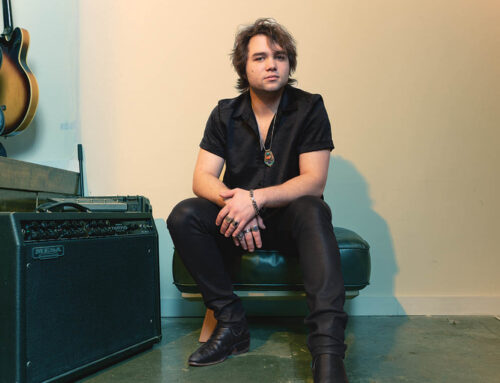Dallas Police Chief David Kunkle has political capital to spend. Since taking over the department almost two years ago, he has used a combination of innovative law enforcement techniques to decrease total crime in the city by 5 percent and violent crime by nearly 20 percent. Now that the council is working on the 2006-07 budget, it’s the perfect time for the Chief to go on a shopping spree and hire enough officers to get Dallas off the top ten list of the most crime-ridden U.S. cities.
But that won’t happen this year or next.
As Chief Kunkle puts it, “We’re just having trouble finding the candidates.”
Since 2004, the City Council has increased the DPD budget to cover the cost of hiring 50 additional officers annually. Recruiters were unable to meet even that modest goal last year.
Some on the council point to the recruiting shortfalls as proof that the city needs to decrease the crime rate with the police force we have.
But District 14 Councilmember Angela Hunt says not so fast.
“If we can’t recruit more than 50 officers a year, the next question is why?”
ROADBLOCKS
At that pace, it will take at least five years to hire 300 additional officers – the number needed for the department to meet its most basic operational obligations, according to a 2004 efficiency study commissioned by the city. But five more years at or near the top of the crime heap is bad for the city’s reputation, bad for tourism, bad for economic development, and especially, bad for the crime victims.
So why do we have to wait so long to get our police staffing levels up to where they should have been all along?
For starters, DPD loses 150 to 200 officers every year to attrition. And that number is likely to rise as each successive wave of baby boomers retires. Just about every police department in the nation is reporting similar staffing deficits, meaning these scarce law enforcement resources are in high demand. Basic economics says DPD will have to pay more to attract the most qualified candidates, but the opposite is currently the case.
In a comparison of starting salaries with Arlington, Garland, Plano, Fort Worth, Irving and Mesquite, Dallas ranks last. And because of a 1979 lawsuit against the City of Dallas, which is still on appeal before the Texas Supreme Court, the city has been hesitant to make any salary adjustments.
Assistant City Manager Charlie Daniels says the city is working on a plan to get around the lawsuit.
“What the lawsuit basically says is if you increase the pay level at one rank, you have to do it for all the ranks in both the police and fire departments. That’s a budget buster.” Instead, Daniels says, they are looking at offering a signing bonus of between $10,000 and $12,000 to every new hire. If approved by the council, the bonuses could go into effect within the next six months.
THE NUMBERS
Kunkle says he’d like to hire 300 police officers this year alone. Two hundred of those hires would cover the anticipated losses to attrition. The other 100 would go toward reaching the efficiency study’s goal of 300 additional officers, assuming DPD recruiters can do it. The department was only able to hire 168 officers last year – 32 short of the 50 additional officers it wanted, and for which the council had already budgeted.
The key is applicant flow, says Deputy Chief Floyd Simpson, who oversees recruitment for the department. Only one out of every 10 applicants makes it through the entire DPD screening and training process to become a Dallas police officer. He says increasing the number of applicants should translate to more police officers on the streets.
And Assistant Chief David Brown says spending more money on recruiting will yield more applicants. The average cost of recruiting and training a new officer is $62,000, so an additional $3 million a year in the DPD budget should buy 50 new officers.
Unfortunately, it’s not that simple.
The recruiting budget was increased last year, doubling the applicant pool, but because of higher standards put in place by Chief Kunkle, including disqualifying applicants with domestic abuse charges against them and those with inconclusive polygraph results, there was a net increase of only 18 officers.
“I would caution that it took us a while to get here, and so it will take a while to get out,” Simpson admits. “A lot of people think throwing a bunch of money at the problem will solve it. It’s simply not going to happen that way.”
He wants to avoid what happened during previous recruitment initiatives in the early 1990s and 2000s when unqualified or poorly screened candidates made it onto the force.
“One thing I do not want to do is make a hiring push and make hiring mistakes. If you follow my logic, incremental growth is the way to go.”
EXCUSES, EXCUSES
Recruiting, training and signing bonuses for 300 additional officers would cost nearly $22 million over a six-year period. That’s in addition to the $1.6 to $2.2 million in signing bonuses that would have to be paid every year to the replacements for the 150-200 officers that leave.
It may be oversimplifying the issue to say that spending more on recruitment will yield more officers, but is it a cop out to argue that there’s no point in trying?
Mayor Laura Miller and others on the council say they are willing to give Kunkle whatever he needs to fight crime, but in the next breath they note that because of DPD’s trouble finding qualified applicants, they’ve done all they can do.
Former Dallas Police Chief Ben Click says, in his experience, it might also be a question of political will.
“It starts out as a funding issue, and since it’s about money, it turns into a political issue,” says Click, who talks to Chief Kunkle from time to time. “The No. 1 goal of the City Council is to get re-elected, and they know they’re not going to get re-elected if their constituents think they’re spendthrifts.”
The council decided at their January retreat not to raise taxes. And Assistant Chief Brown says the preliminary $1.68 billion general fund budget unveiled last month includes only a 1 or 2 percent increase in spending for the DPD.
Colin French, president of the Preston Hollow North Homeowners Association, takes the Oliver Wendell Holmes approach to taxes.
“He never minded paying taxes because he felt like he was ‘buying civilization.’”
French, who took over his HOA after a contentious neighborhood debate over whether the cost of hiring off-duty police officers should be mandatory for all PHNHA members, says an interesting argument emerged from the opposition.
“They didn’t think it was fair for us to pay for extra police patrols while other, poorer neighborhoods could not…But anyone advancing that argument would almost have to support broader taxation for broader police protection, wouldn’t they?”
Councilmember Linda Koop explains that there’s no need to move money from other departments or raise taxes to pay for police officers that the department can’t hire. Besides, she says, Kunkle has not asked for more than the 50 additional officers that the council has already budgeted.
Koop says the chief has been effective in doing more with less, including moving existing uniformed officers out of their desk jobs and onto the street and entering into a cooperative agreement with the Dallas County Constable’s office.
The council’s preliminary 2006-07 budget allocates enough money for only 250 officers – 50 short of the DPD goal. But the reason for the discrepancy might have more to do with Chief Kunkle’s conservative hiring projections than any unwillingness by the council to fully fund the department.
“The council has actually said they will give me the money if I can use it,” Chief Kunkle explains. “But we don’t want to budget money we can’t use.”
Or as Simpson puts it, it’s a “stretch goal.” But, he adds, if 300 candidates came through the academy today, he can’t imagine the council withholding the money to hire them.
“They’re giving us what we need, and more than that, they’re supporting the general direction we’re going in. We will go back to the council for the additional 50 officers if we go over budget.”
WHAT NOW?
The recruitment numbers could improve significantly once the DPD’s compensation package becomes competitive with surrounding cities. If that happens, the mayor and council’s crime-fighting pledges could be put to the test.
Until then, Chief Kunkle will have to continue to make due.
The early returns are encouraging. Crime was down across the board last year for the first time since 1993. Morale has noticeably improved since he took over the department, and he has instituted some best practices of police departments in other big cities.
Two programs in particular have produced impressive results.
Operation Disruption is a saturation enforcement program borrowed from Chicago’s police department in which a 60-member police task force takes control of high-crime areas. Double-digit reductions in crime attest to its effectiveness.
Dallas’ version of Compstat, a NYPD statistical analysis methodology, enables police officials to detect crime patterns in days and weeks instead of weeks and months. The software takes into account geographical patterns and minor offenses. It’s sophisticated enough to tell commanders where they should focus their resources and whether their efforts are working.
Community crime prevention programs have also flourished under Kunkle. Volunteers in Patrol training classes have been breaking attendance records for months, and the department’s Interactive Community Policing programs continue to gain traction.
Chief Kunkle says it’s all part of his crime-fighting master plan.
“The first step was to reduce crime in a measurable sort of way, and we’ve done that,” he says. “The next thing we need to do is engage the community, find out who they are, to work with them to make the community better.”
But there are limits to what the current force can accomplish. Click says cops are so busy racing from radio call to radio call that they don’t have time to do anything else.
“Dallas is understaffed, there’s no question about it. You can’t pull off what Kunkle wants to do without the staffing.”





